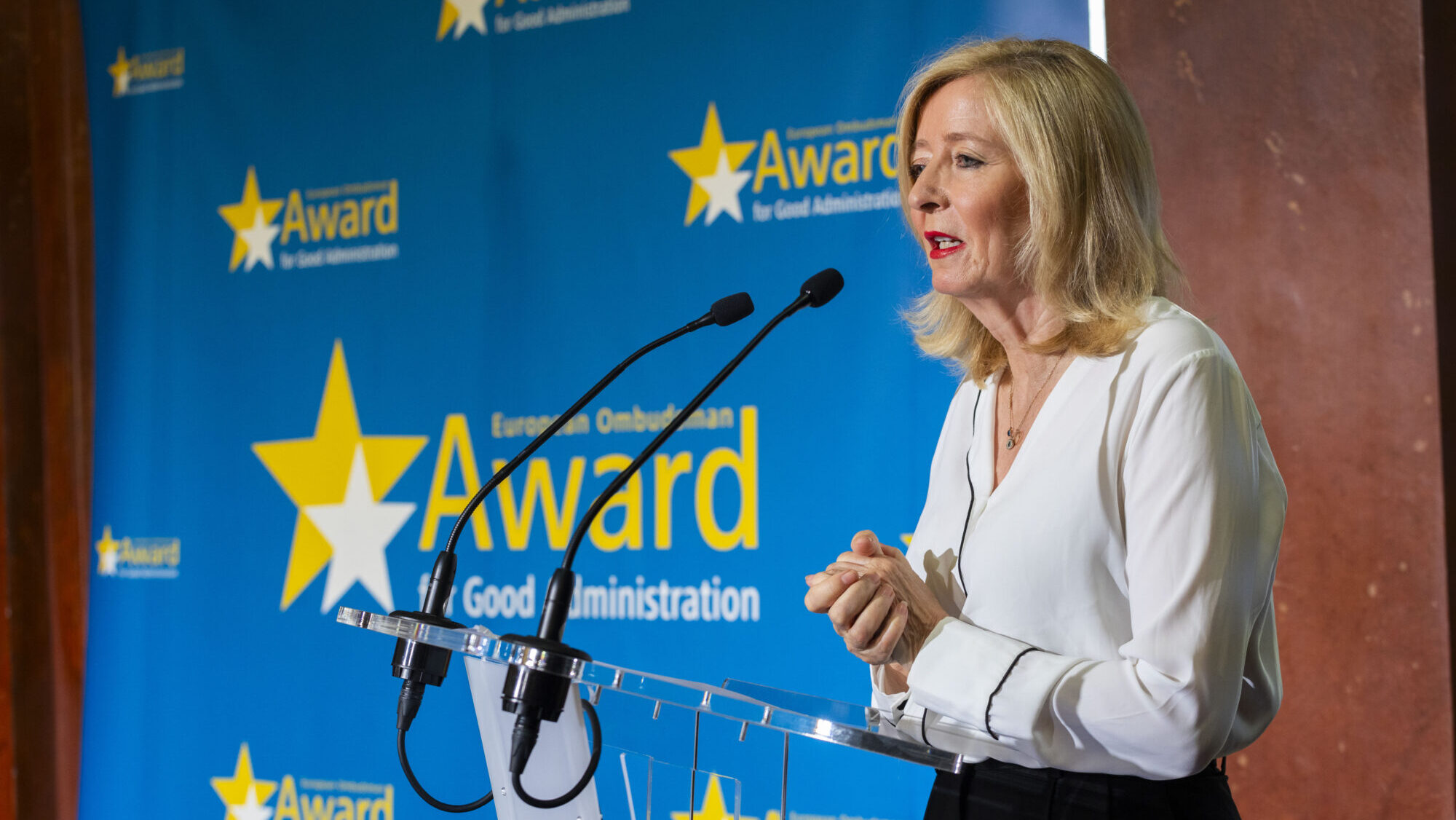
European Ombudsman Emily O’Reilly.
Photo: European Ombudsman
The European Ombudsman found that the European Commission’s withholding documents about a highly controversial policy constituted “maladministration.” Last month it ordered the executive to disclose the files to MCC Brussels, a conservative think tank, “without further delay,” the watchdog revealed last week.
Ombudsman Emily O’Reilly’s preliminary ruling addressed to the Commission and dated July 10th—published on its website on Friday, August 2nd—notes that the case was opened months ago, when MCC filed a complaint on April 29th, ten days after the Commission missed the initial deadline for answering its freedom of information (FOI) request.
The think tank requested access to 20 documents (out of 27) pertaining to the controversial Nature Restoration Law’s consultation period, during which the Commission asks for input from relevant stakeholders (private sector, NGOs) before finalizing their policy proposal.
As the Ombudsman also noted, “the Commission refused access to the documents in their entirety, arguing that disclosure would seriously undermine an ongoing decision-making process … [and] could thus give rise to unnecessary misunderstandings.”
But that’s just a weak excuse, O’Reilly hinted. Before ruling “maladministration” against the Commission, the watchdog referred to the European Court of Justice when reminding Ursula von der Leyen’s Commission that legislative documents should always be disclosed, regardless of the stage of the legislative process, and that “as a general principle, stakeholders who actively provide input to a decision-making process … should not be allowed to do so behind closed doors.”
The Ombudsman recognizes that there can be exceptions in case the documents contain “particularly sensitive information” but says these do not fall under the category, and therefore she does not understand how the disclosure could have led to any kind of “unnecessary misunderstandings.”
Since then the Commission has complied and finally given access to the documents to MCC, which has promised to come back and publish its findings on the role of NGOs in the process at a later date.
Important example of how underhand the European Commission can be. Especially important given likely backsliding over what was said with regards to the problems associated with the EU Green Deal in the run up to the EP elections https://t.co/qbkn3Y9jFo
— Tony Gilland (@tonygilland) August 2, 2024
The Nature Restoration Law is a particularly controversial piece of EU legislation that was voted down by its institutions several times, only to resurface after minor tweaks again and again—until it passed in June, thanks to the rebellion of Austria’s green environmental minister who voted against the wishes of her government. Vienna was quick to protest and requested to annul the vote, but Brussels said it was binding even if the minister—representing the junior coalition partner—acted alone and unsanctioned.
The law will designate at least 20% of the EU member states’ landmass as preserved restoration sites and introduce new green regulations on land use. Critics, including half the member states, worry that it will result in catastrophic loss of farmland and jeopardize the continent’s food security.
Since this widely disliked law was pushed undemocratically over the finish line, it will be particularly interesting to see what the mostly environmental NGOs had to say about it during the consultation period, and how their positions impacted the Commission’s final draft.
At this point in time, however, the think tank is not ready to share what it expects to dig out of the pile yet MCC’s Head of Communication John O’Brian told The European Conservative:
We need to do a lot more work on it, but I think the role that NGOs play generally in the EU legislative process is an unhealthy one, and we’re going to be looking at it very closely.”
